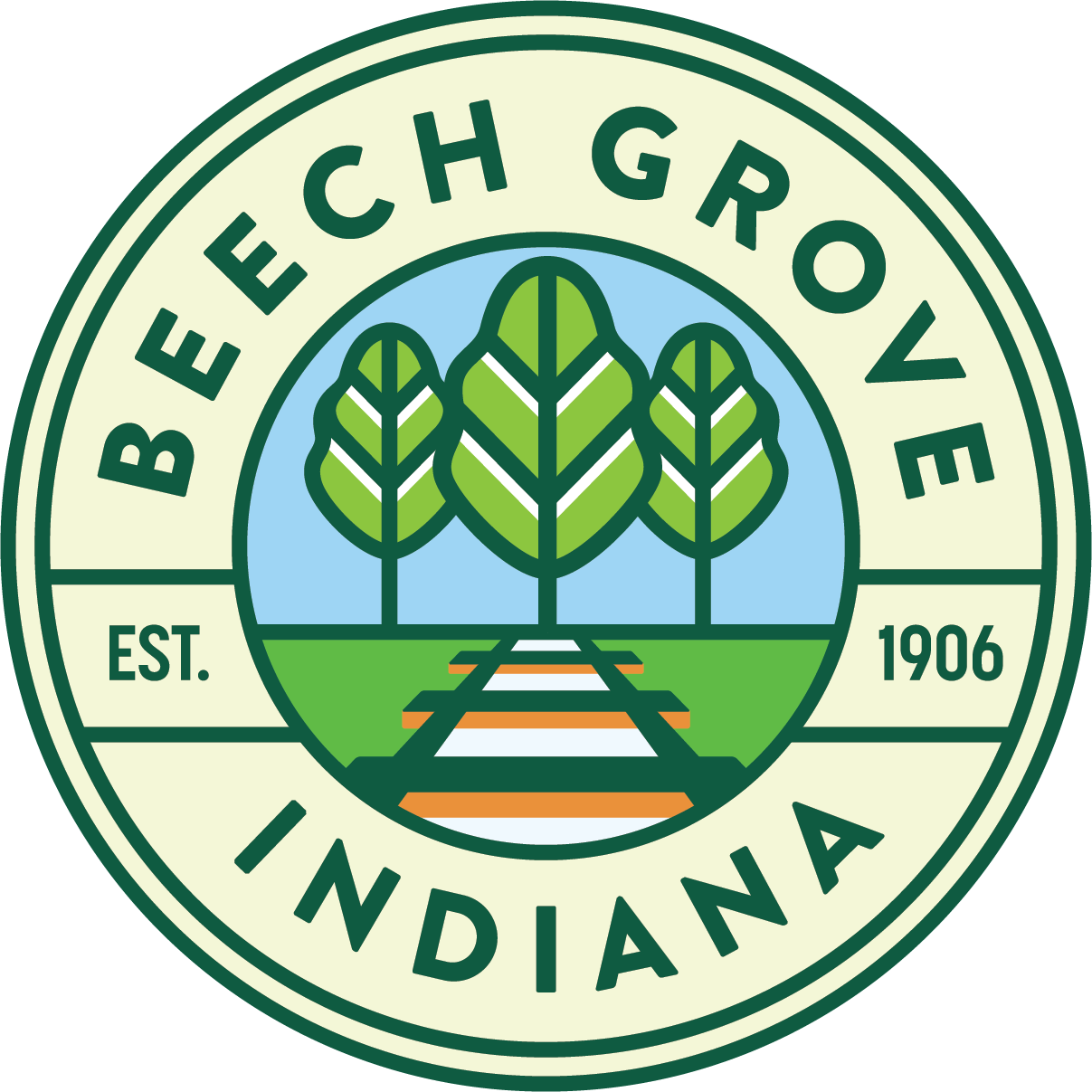MS4 Program
What is an illicit discharge?
The Indiana Department of Environmental Management (IDEM) designated the City of Beech Grove as a municipal separate storm sewer system (MS4). The city is required to comply with a state-issued stormwater permit (INR040023). Beech Grove is implementing a program to prevent stormwater pollution in urban runoff and improve the water quality of local water bodies.
The Stormwater Quality Management Plan describes Beech Grove’s MS4 program and how it is implemented. Annual Reporting of certain measures and goals is required to be submitted to IDEM.
As part of the MS4 Program, the city adopted ordinances and standards to protect stormwater. Only rainwater should enter storm drains or surface waters. The ordinances and standards prohibit illicit connections and discharges to the storm sewer and illegal dumping. The ordinances and standards also regulate stormwater detention, water quality, and construction and post-construction practices. Refer to the Code of Ordinances and Stormwater Standards Manual below.
An illicit discharge is any discharge to a MS4 conveyance that is not composed entirely of stormwater, except naturally introduced floatables, such as leaves or tree limbs. The stormwater drainage system includes street curbs and gutters, ditches, catch basins, yard inlets, and underground storm pipes.
Examples of an Illicit Discharge include:
- Pouring paint or other chemicals into or near the storm drainage system.
- Changing oil or antifreeze over or near a storm structure and allowing the liquid to flow into the storm drainage system.
- Washing vehicles where the runoff could drain into the storm drainage system.
- Washing dumpster pads and allowing the runoff to drain into the storm drainage system.
- Dumping grass clippings into a stormwater basin or inlet or into the street.
-
Illicit discharges cause water pollution by sending pollutants directly into creeks, streams, ponds, and lakes. Be sure you know what illicit discharges are so you can help prevent water pollution and keep our streams clean!
Illicit discharges and stormwater quality issues should be reported to the Department of Public Works at 317-803-9098 . See more information and examples in this short video.
Public Education
Beech Grove is promoting pollution prevention activities and education as part of the MS4 program. The following educational resources are available for viewing to learn more about stormwater.
o Blue is the New Green - YouTube. Muncie Sanitary District. March 2015. Duration: 10:11. Video for the public on the right things to help protect our environment.
o Water Quality Education by The Clean Water Education Partnership - YouTube. Town of Cary, North Carolina. January 2018. Duration: 2:42. Video on what you can do to maintain water quality.
o Freddy the Fish Teaches About Stormwater - YouTube. North Central Texas Council of Governments – Environment and Development. December 2014. Duration: 4:28. Freddy the Fish teaches kids about what happens to rain after it hits the ground, where storm drains lead to, and what we can do to help prevent water pollution
o Explaining Stormwater Runoff - YouTube. The Watershed Institute. Original video produced by the West Michigan Environmental Action Council for the City of Grand Rapids, MI. June 2018. Duration: 1:35.
CITIZEN INVOLVEMENT
Citizens of Beech Grove can call the Stormwater Hotline/Department of Public Works at 317-803-9098 [ME1] to report the illegal dumping of chemicals, heavy erosion from constructions sites, polluted water, or other illegal connections to the storm system (such as septic tank discharges or washing machine wash water).
What can you do to prevent stormwater pollution?
- Clean up your property. Properly dispose of outdated or unused household chemicals stored in your basement, garage, or barn by taking them to an Indy Tox Drop location . Do not store these materials outdoors.
- Recycle used oil, automotive fluids, batteries, and other products. Do not dispose of hazardous products in storm drains, alleys, or the ground. This pollutes the water supply.
- Reduce the number of fertilizers, pesticides, or other hazardous chemicals that you use. Buy only what you need so that you do not have to dispose of leftovers. Read all the labels and follow directions.
- Sweep up debris, rather than hosing down areas.
- Clean up after your pet and dispose of pet waste in a trash container or toilet. When left outdoors, pet waste contributes bacteria and nutrients to stormwater. Learn why this is important.
- Use a commercial car wash or wash your car on an unpaved surface to reduce the amount of dirty, soapy water entering storm drains and waterways.
- Cover piles of soil and mulch being used for landscaping projects.
- Prevent debris from entering nearby storm drains when conducting outdoor home improvement or landscaping projects.
- If you have a septic system, have it serviced regularly. Make sure it is not connected to the storm sewer or polluting a creek or body of water.
- Drain your swimming pool only when a test kit shows non-detectable levels of chlorine and bromine.
- o If you spill chemicals, oil, or fuel, clean it up with absorbent materials (for example kitty litter). Do not let it soak into the ground. Place absorbent in the trash.
- o If you live next to a community pond, help maintain it. Learn more from this video: Stormwater Pond Maintenance for Homeowners.
Stormwater utility fees
All the programs described are provided and funded through the stormwater utility fees. For more information on the stormwater utility fees and the Beech Grove Stormwater Utility, refer to the Beech Grove Stormwater Utility Policy and Procedures Manual.

